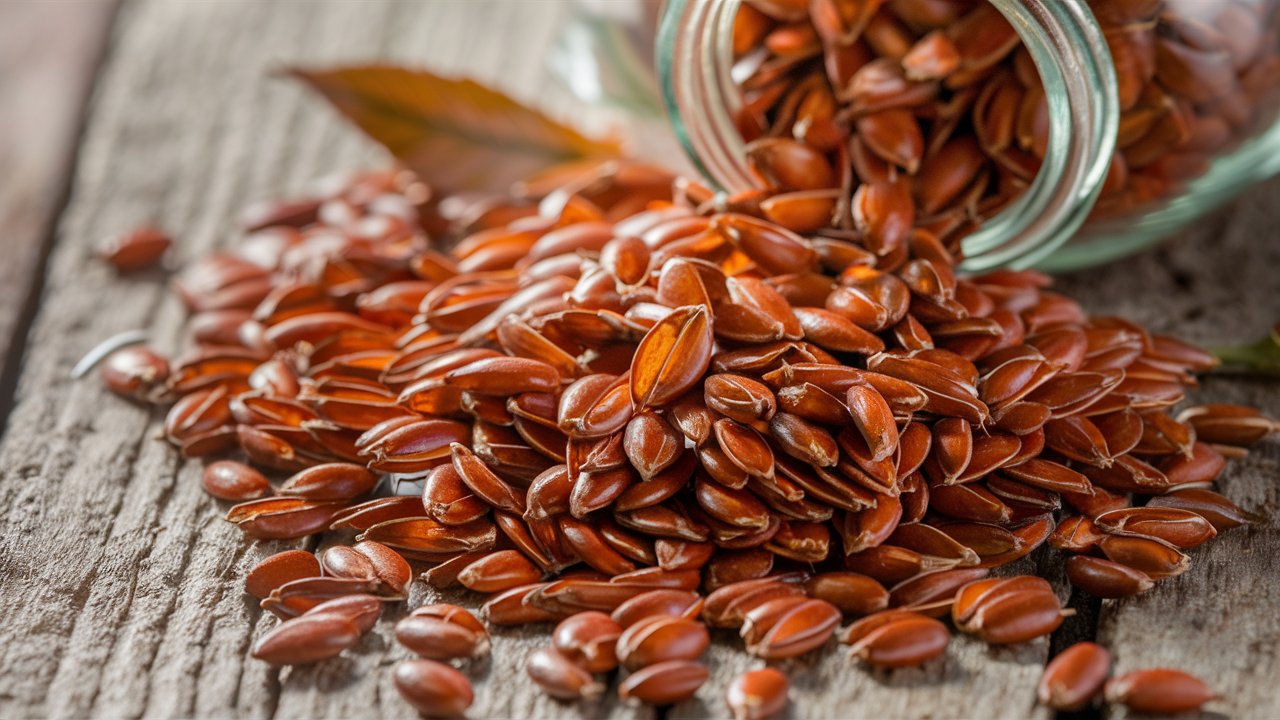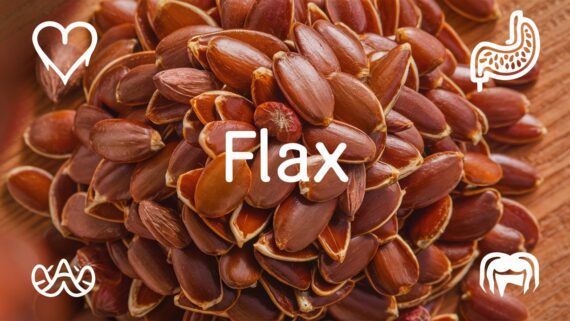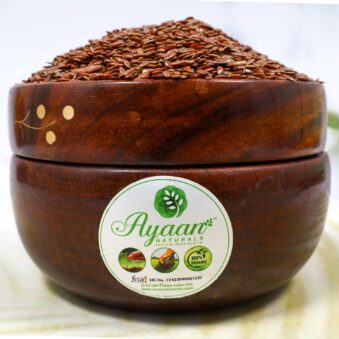- Your cart is empty
- Continue Shopping
Flax Seeds: Top Benefits and Export Insights for Modern Markets

Introduction to Flax Seeds (150-200 words)
Flax seeds, often heralded as a superfood, have played a pivotal role in agriculture for thousands of years. Originating from the ancient civilizations of Egypt and Mesopotamia, these tiny seeds have been celebrated not only for their remarkable health benefits but also for their historical significance in traditional agriculture.
Cultivated since antiquity, flax seeds were valued for their versatility. They were used to produce linen fabric and as a vital component of the diet. The seeds are rich in essential nutrients, which contributed to their enduring popularity. As global interest in sustainable and health-conscious eating grows, flax seeds are making a significant comeback, especially in the export market.
Understanding the roots of flax seeds provides valuable insight into their modern applications. For export market professionals exploring traditional agro products, recognizing the historical context and continued relevance of flax seeds can offer a competitive edge in sourcing and promoting these nutrient-packed gems.
Nutritional Benefits of Flax Seeds (200-250 words)
Flax seeds are a powerhouse of nutrition, packed with a variety of beneficial compounds that contribute to overall health. Here’s a closer look at the key nutrients and health benefits they offer:
1. Omega-3 Fatty Acids: Flax seeds are one of the richest plant sources of alpha-linolenic acid (ALA), an essential omega-3 fatty acid. ALA is known for its anti-inflammatory properties, which can help reduce the risk of heart disease and support overall cardiovascular health.
2. Fiber: These tiny seeds are an excellent source of both soluble and insoluble fiber. Soluble fiber helps regulate blood sugar levels and promotes healthy cholesterol levels, while insoluble fiber aids digestion and supports a healthy gut.
3. Lignans: Flax seeds contain lignans, which are phytoestrogens with antioxidant properties. Lignans can help balance hormones, reduce the risk of certain cancers, and provide anti-inflammatory benefits.
4. Protein: Flax seeds offer a good amount of plant-based protein, making them a valuable addition to vegetarian and vegan diets. Protein is essential for muscle repair and overall body function.
Incorporating flax seeds into your diet can lead to numerous health benefits, from improved heart health and digestion to enhanced hormonal balance. For export market professionals, emphasizing these nutritional benefits can highlight the value of flax seeds to potential buyers and health-conscious consumers alike.
Flax Seeds in Traditional Agriculture (200-250 words)
Flax seeds have a rich history in traditional agriculture, where they were highly valued for both their agricultural and nutritional benefits. Historically, flax was one of the earliest cultivated crops, with evidence of its use dating back over 6,000 years in ancient Egypt and Mesopotamia.
1. Historical Cultivation: In ancient times, flax was grown for its dual purposes: the seeds for consumption and the fibers for making linen. The cultivation of flax was integral to early agricultural societies, providing a crucial food source and material for textiles. Traditional farming methods involved sowing the seeds in well-prepared soil and harvesting the plants when they were at their peak.
2. Varieties of Flax Seeds: Various types of flax seeds have been cultivated over the centuries. The most common varieties are brown and golden flax seeds, each with slightly different flavor profiles and nutrient contents. Brown flax seeds have been traditionally used for their rich nutty flavor, while golden flax seeds are often preferred for their milder taste.
3. Uses in Traditional Practices: Beyond their role as a food source, flax seeds were utilized in traditional medicine and folk remedies. They were believed to have therapeutic properties, including aiding digestion and promoting overall well-being.
Understanding the historical context of flax seeds offers valuable insights for export market professionals. This knowledge not only highlights the enduring value of flax seeds but also helps in identifying the best practices for cultivating and marketing them in today’s global market.
Export Market for Flax Seeds (200-250 words)
Flax seeds are gaining traction in the global export market, driven by their impressive health benefits and increasing consumer demand for nutritious foods. Here’s a closer look at the key aspects of the flax seed export market:
1. Global Demand: The demand for flax seeds has seen significant growth, particularly in regions where health-conscious eating is on the rise. Countries like the United States, Canada, and several European nations are major importers due to their interest in plant-based proteins and omega-3 sources. Additionally, emerging markets in Asia are beginning to recognize the value of flax seeds, contributing to expanding opportunities.
2. Key Markets and Trends: The top markets for flax seed exports include the United States, Germany, and China. These markets value flax seeds for their nutritional profile and versatility. Trends such as the rise of plant-based diets and increased awareness of health benefits are fueling this demand. Exporters should stay informed about regional preferences and health trends to align their offerings accordingly.
3. Exporting Tips: For those entering the flax seed export market, understanding regulations and standards in different countries is crucial. Quality certification, proper packaging, and adherence to import regulations can make or break an export venture. Establishing strong relationships with distributors and buyers can also facilitate smoother transactions and market entry.
Navigating the flax seed export market requires a blend of knowledge about global trends and practical exporting strategies. For professionals exploring traditional agro products, tapping into the growing flax seed market can offer significant opportunities and align with the rising global interest in healthy, sustainable food sources.
Flax Seeds: A Modern Perspective (150-200 words)
In recent years, flax seeds have experienced a renaissance, evolving from a traditional crop to a modern health staple. This renewed interest highlights the seeds’ versatility and their alignment with contemporary dietary trends.
1. Recent Trends: The surge in popularity of flax seeds is largely driven by the growing demand for plant-based and nutrient-dense foods. Consumers are increasingly seeking out flax seeds for their high omega-3 content, fiber, and protein, which support a variety of health goals, from heart health to digestive wellness.
2. Innovations in Processing: Advances in processing technology have made flax seeds more accessible and user-friendly. Products like flaxseed oil, ground flaxseed, and flaxseed meal have become widely available, catering to diverse consumer needs. These innovations enhance the seeds’ usability in various culinary applications, from smoothies to baked goods.
3. Modern Applications: Flax seeds are now featured in a range of products, including health bars, cereals, and dietary supplements. This trend reflects a broader move toward integrating traditional ingredients into contemporary diets, making flax seeds a versatile ingredient in modern nutrition.
Understanding the modern perspective on flax seeds offers valuable insights into their role in today’s food industry. For export market professionals, recognizing these trends can help in positioning flax seeds effectively and tapping into the growing consumer interest in health-focused products.
Conclusion and Call to Action (100-150 words)
Flax seeds, with their rich historical roots and impressive nutritional profile, have firmly established themselves as a valuable commodity in both traditional and modern contexts. From their ancient agricultural significance to their current role as a superfood, flax seeds offer a wealth of benefits that resonate with today’s health-conscious consumers.
For export market professionals exploring traditional agro products, flax seeds present a promising opportunity. By understanding their historical importance, nutritional advantages, and current market trends, you can better position your products and meet the growing global demand.
Ready to dive into the world of flax seeds? Explore the potential of this remarkable crop with AYAAN NATURALS. Whether you’re looking to source high-quality flax seeds or seeking information on how to enter the export market, we’re here to help. Contact us today to learn more and take the next step in your flax seed journey!
